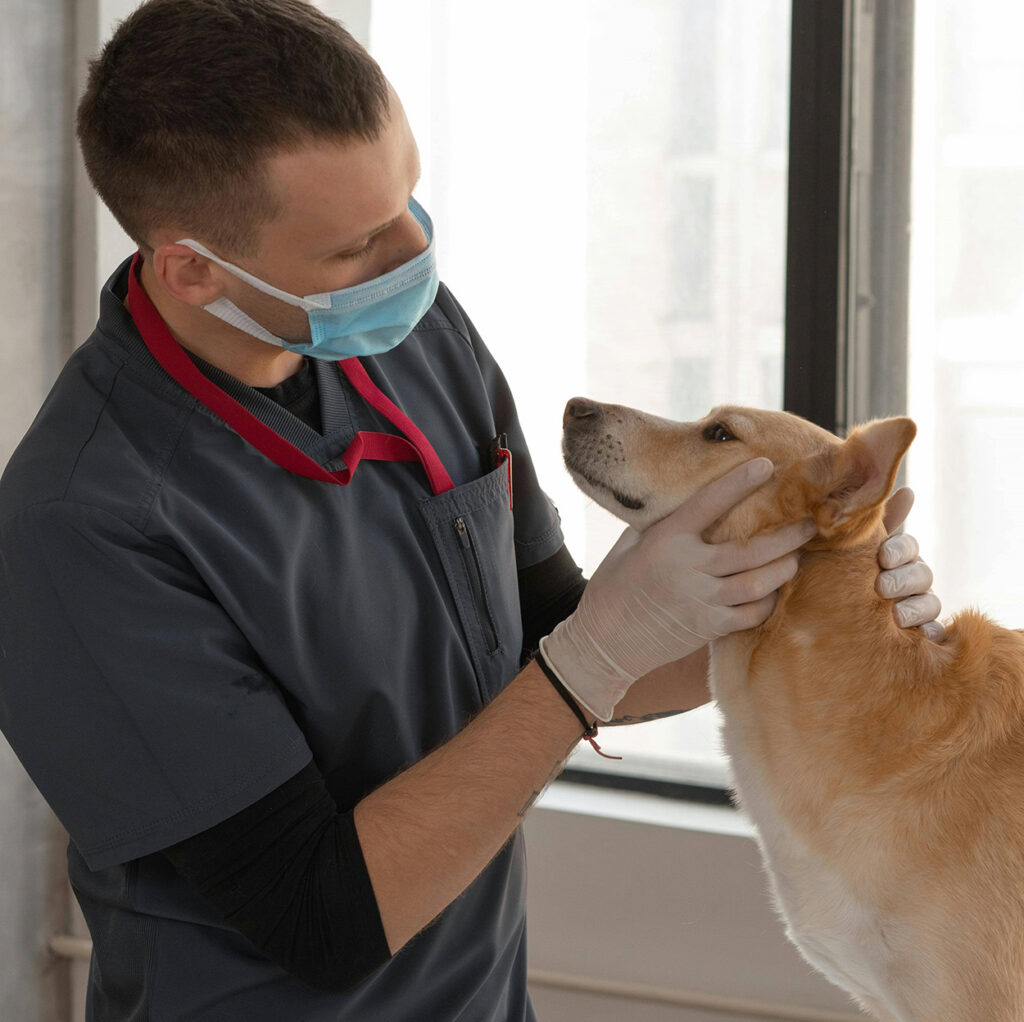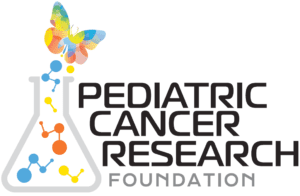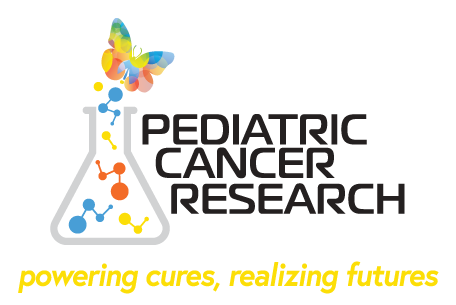By Bill Thomas | March 15, 2024
It’s been said that dogs are humans’ best friends. They are good for our health. They provide companionship, calm anxiety, lower blood pressure and cholesterol, and motivate us to exercise. Now, dogs are helping pediatric cancer researchers make inroads into treating cancer and developing revolutionary new treatment techniques.

Pediatric cancer specialist Dr. John Ligon, an assistant professor of pediatrics at the University of Florida College of Medicine, who is board-certified in pediatric hematology and oncology, is one of those researchers.
Dr. Ligon collaborates with Dr. Rowan Milner, a board-certified veterinary oncologist from the UF College of Veterinary Medicine. Dr. Milner’s program at UF CVM includes research in the immune response to cancers like osteosarcoma. Recently this program supported the NCI designation of the UF Health Cancer Center by supporting research in Comparative Oncology.
Working together with funding from the Pediatric Cancer Research Foundation (PCRF), Dr. Ligon and Dr. Milner have created an RNA nanoparticle vaccine for the treatment of metastatic osteosarcoma in humans. It is now being tested in human clinical trials and they expect the vaccine will be in pediatric clinical trials in the spring of 2024.
The researchers’ progress wouldn’t be possible without the aid of canine test subjects, however. These test subjects — that is, client-owned dogs with naturally occurring cancers — are being treated at the UF College of Veterinary Medicine under Milner’s clinical trials program.
“Our PCRF-funded research is crucial to allowing us to begin thinking about combining RNA nanoparticles with other immunotherapies like immune checkpoint inhibitors,” Ligon said.

There are several reasons that dogs with naturally occurring cancers are a boon to researchers, Ligon noted. Humans and dogs are more similar genetically than the mice often used in scientific research. Humans and dogs also share a number of age-related diseases, including many types of cancer. And, because humans and dogs often live together, they also are typically exposed to the same environmental factors.
“Canine cancers are much more similar to human cancers than mouse cancers. In fact, some canine cancers like osteosarcoma have 99%+ similarity genetically to human cancers,” he explained. “Additionally, the fact that we are treating pet dogs (and thus treating a spontaneously developing tumor as opposed to an artificially administered cancer) further likens the model to human cancer.”
The PCRF-funded research is crucial to allowing the team to begin thinking about combining RNA nanoparticles with other immunotherapies like immune checkpoint inhibitors, Ligon said.
Apart from the oncology research program at UF, other organizations investing in pet health research include the University of Washington and Texas A&M’s Dog Aging Project, the biotech startup Loyal and the veterinary drug company TriviumVet.
An article published by The Washington Post detailed efforts by the Morris Animal Foundation and the University of California at Davis that focused specifically on golden retrievers, which have a 35% higher probability of developing cancer than other breeds. Most notably, UC Davis researchers identified a genetic variant that allows some dogs to enjoy a longer lifespan. The mutation is part of a family of genes linked to various cancers in both humans and canines.
“It is quickly becoming clear that canines are a truly unique and powerful model [for cancer research],” Dr. Ligon said. Indeed, as the Pediatric Cancer Research Foundation and its partners continue looking forward into the future of pediatric cancer research, there seems to be no end to what we can accomplish with the help of man’s best friend.




